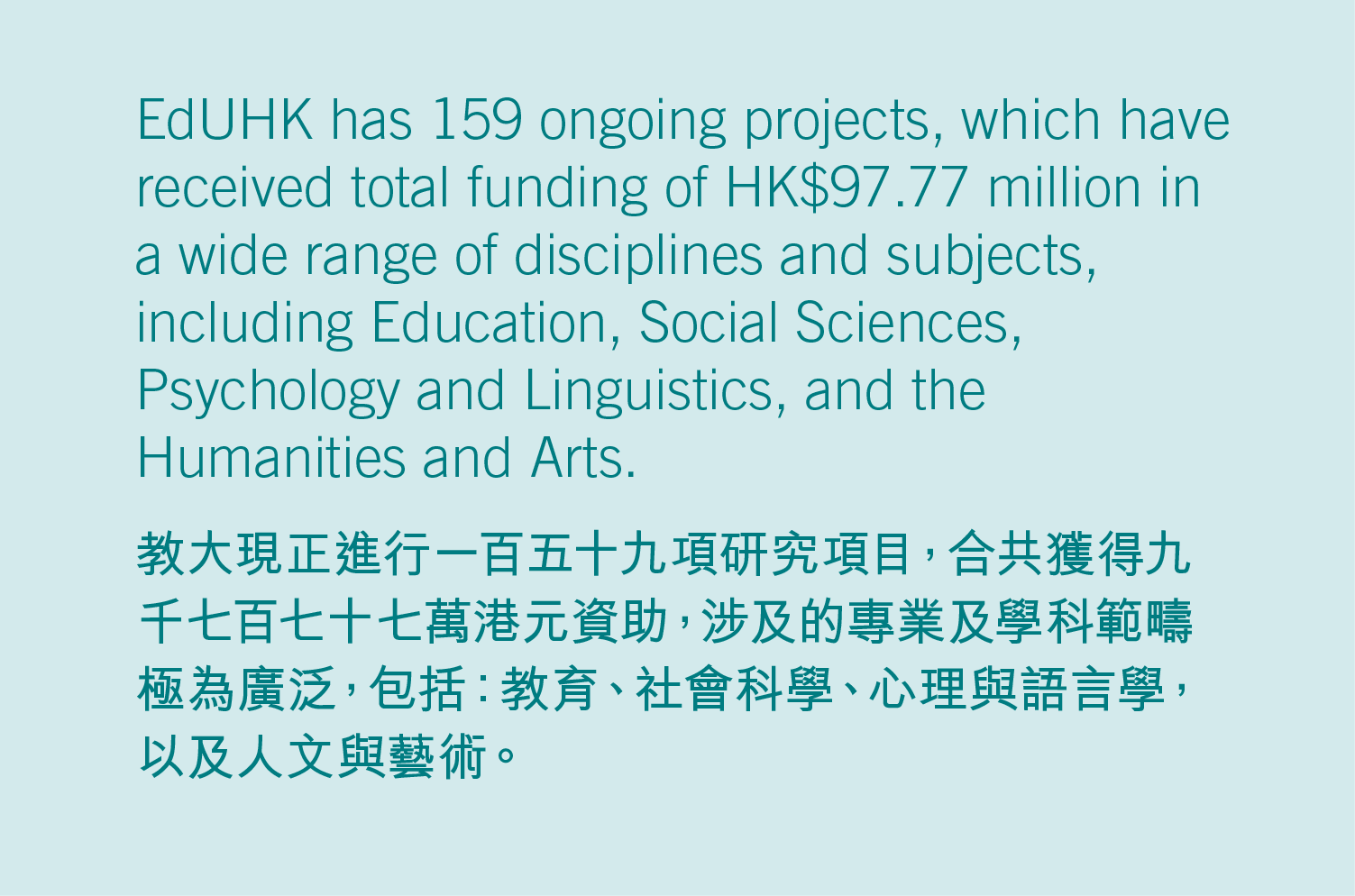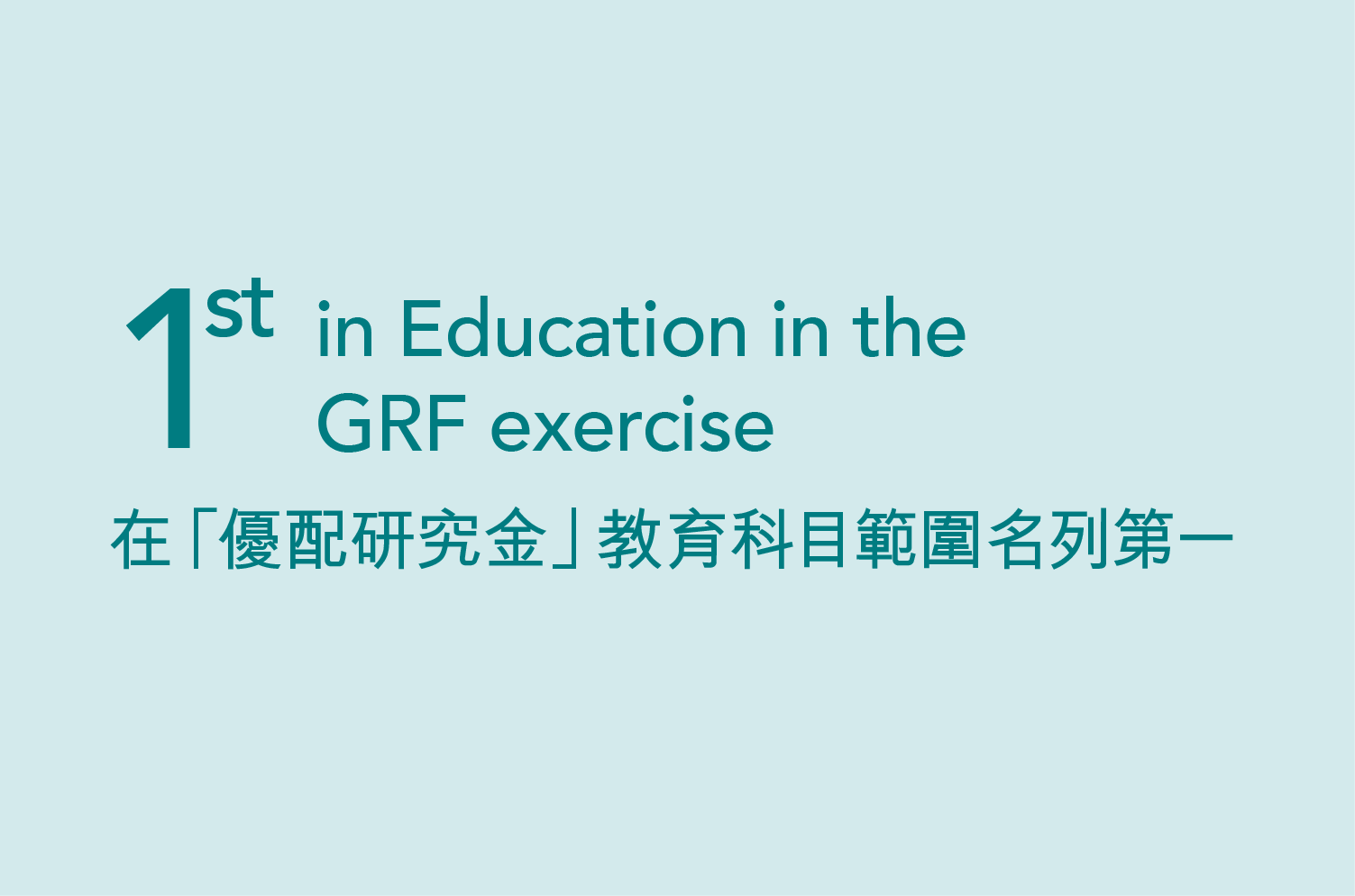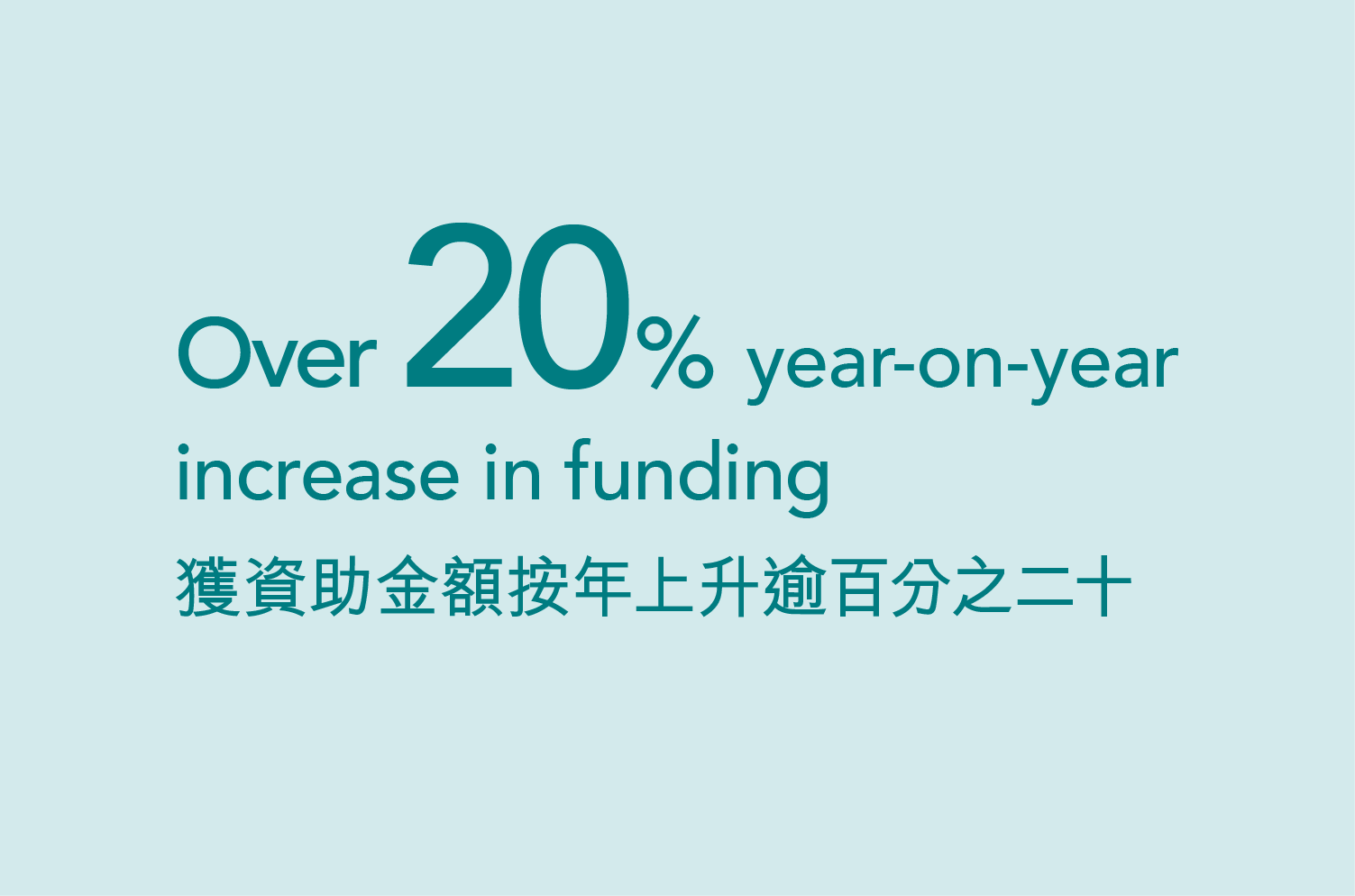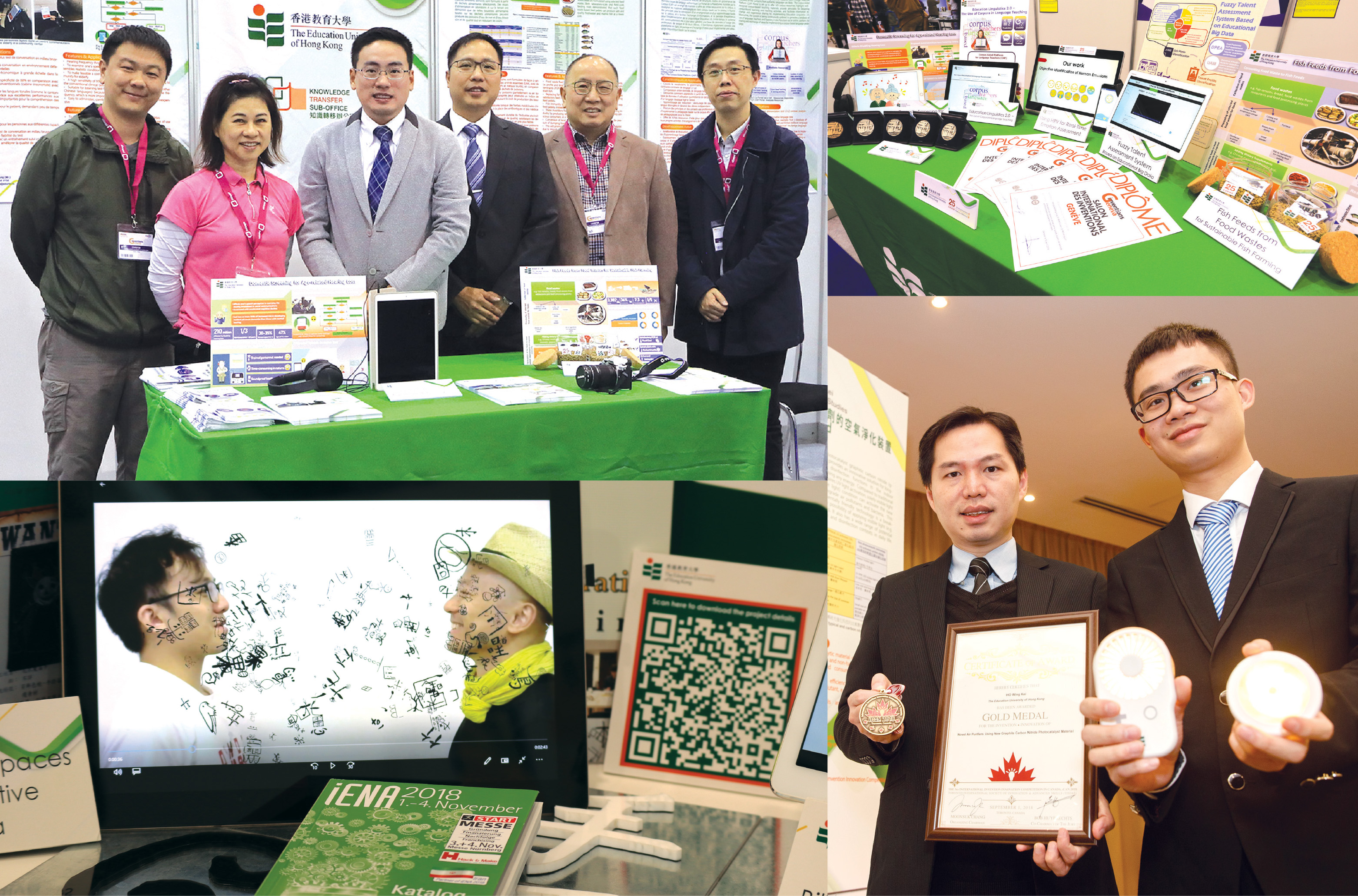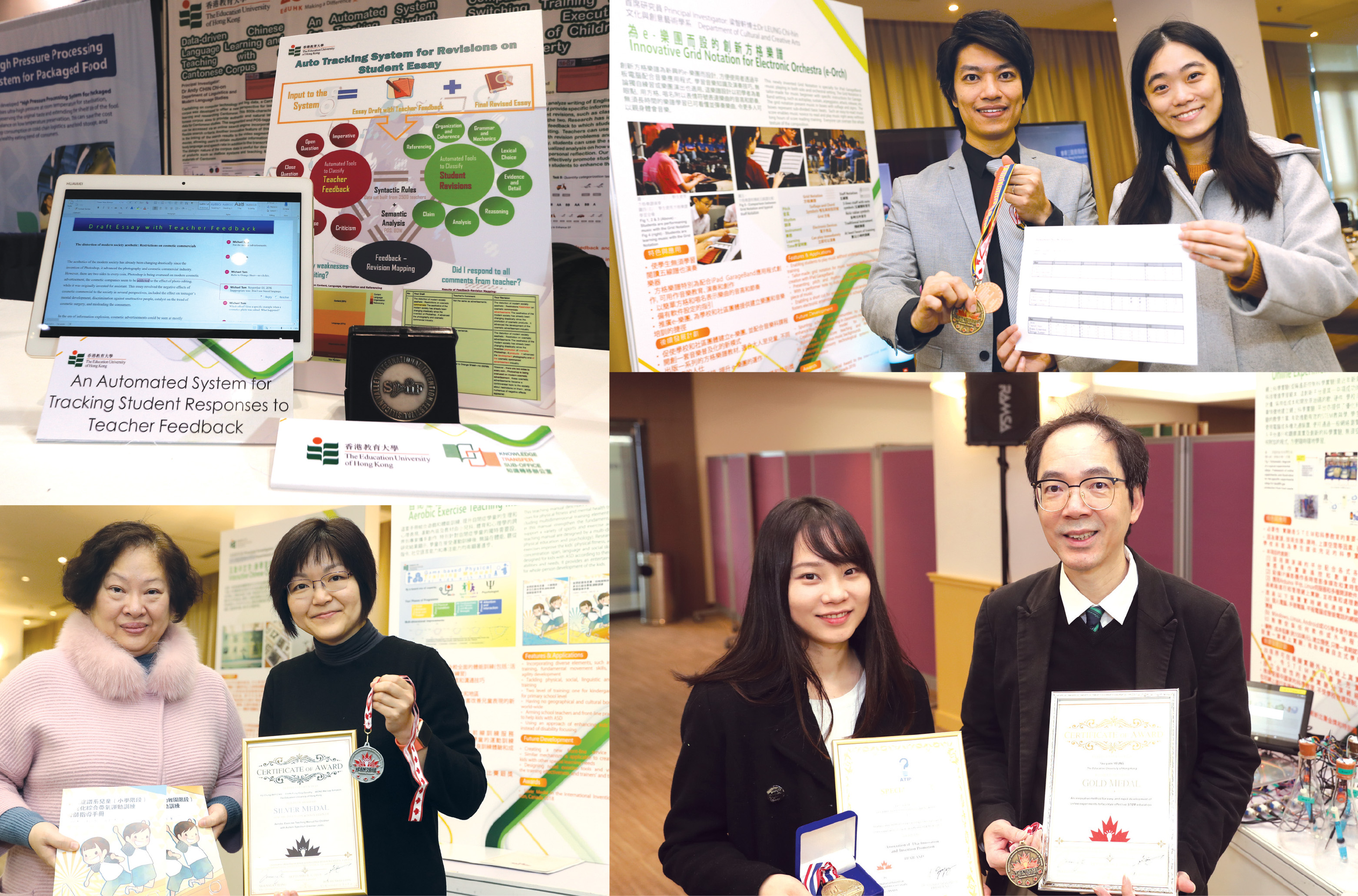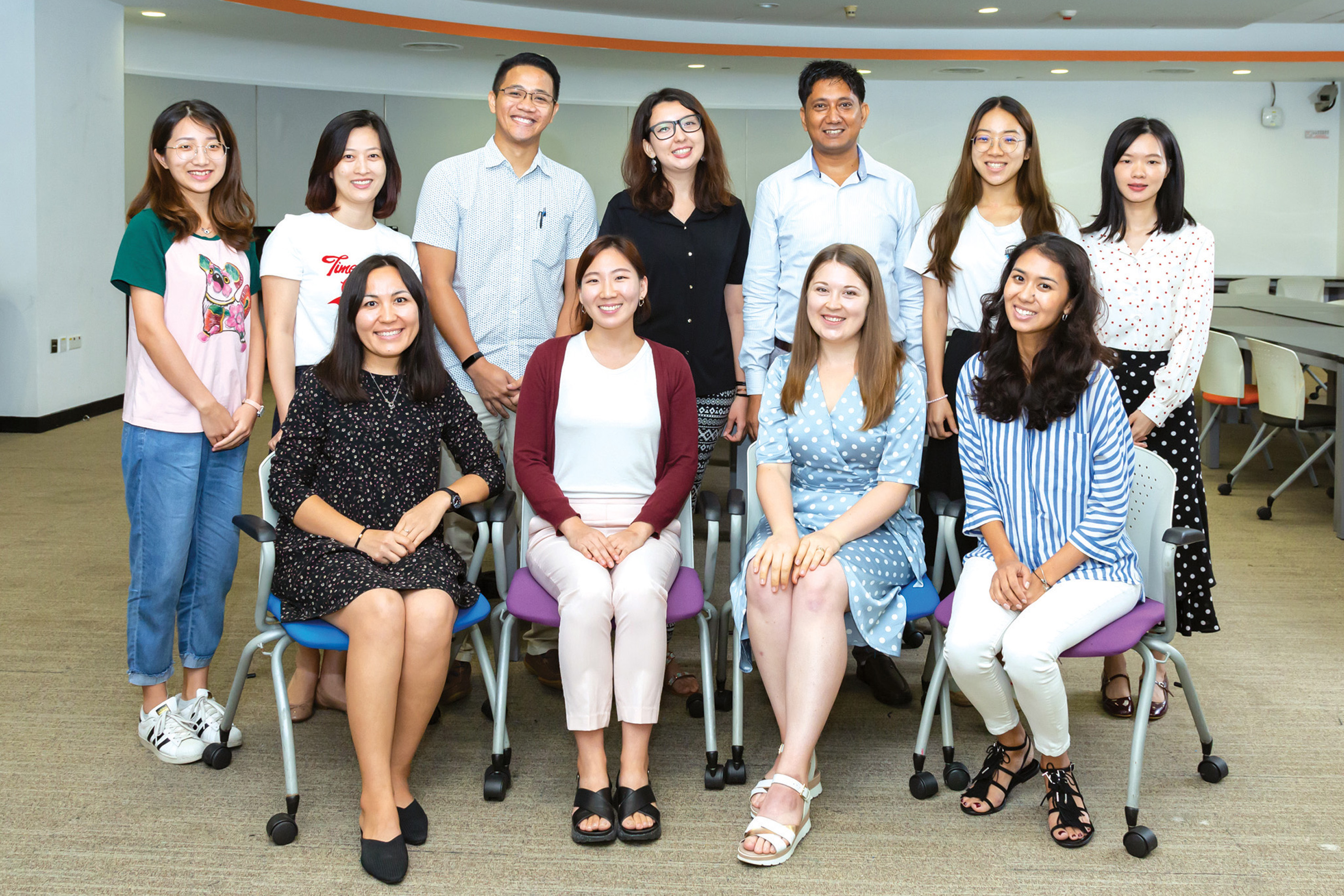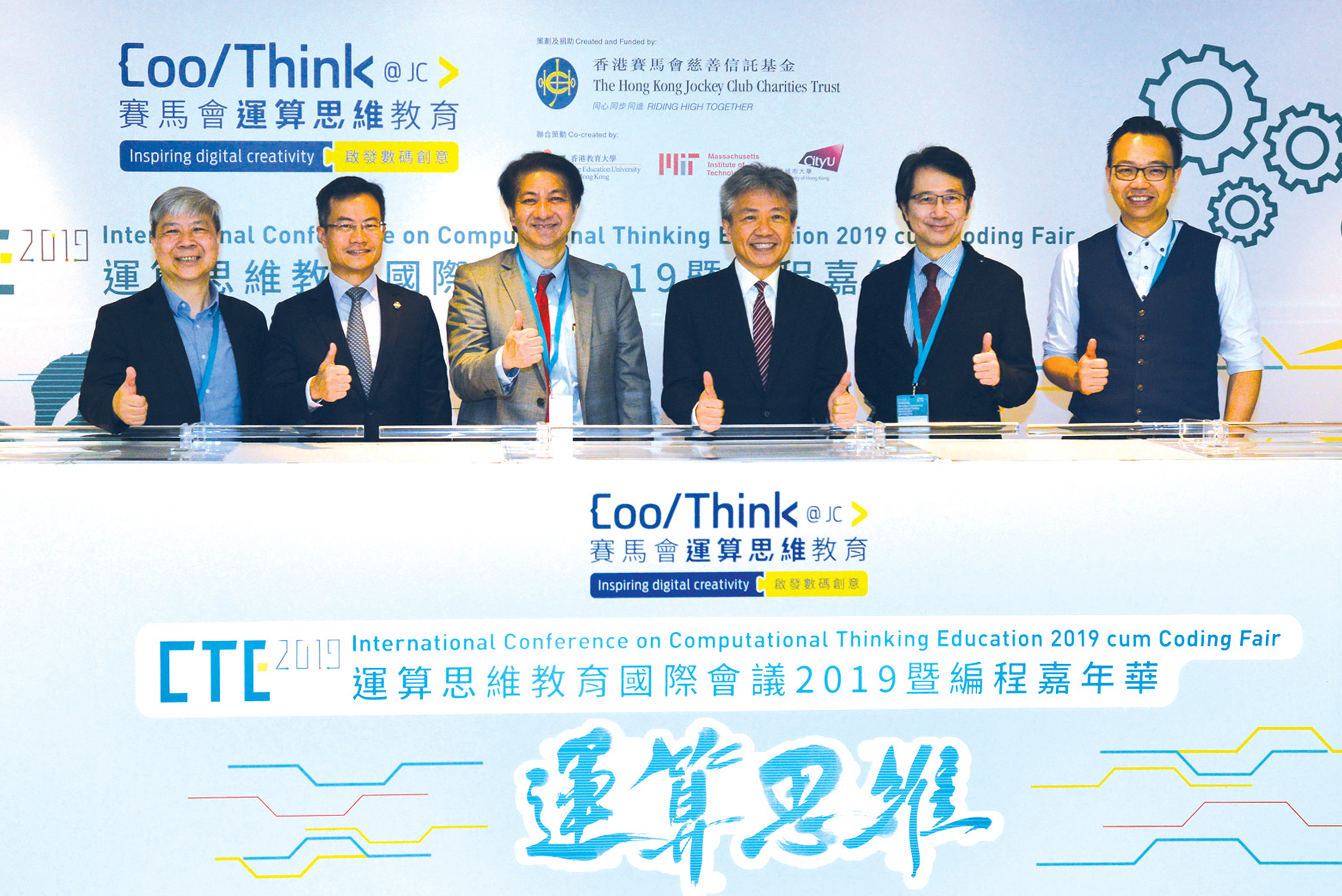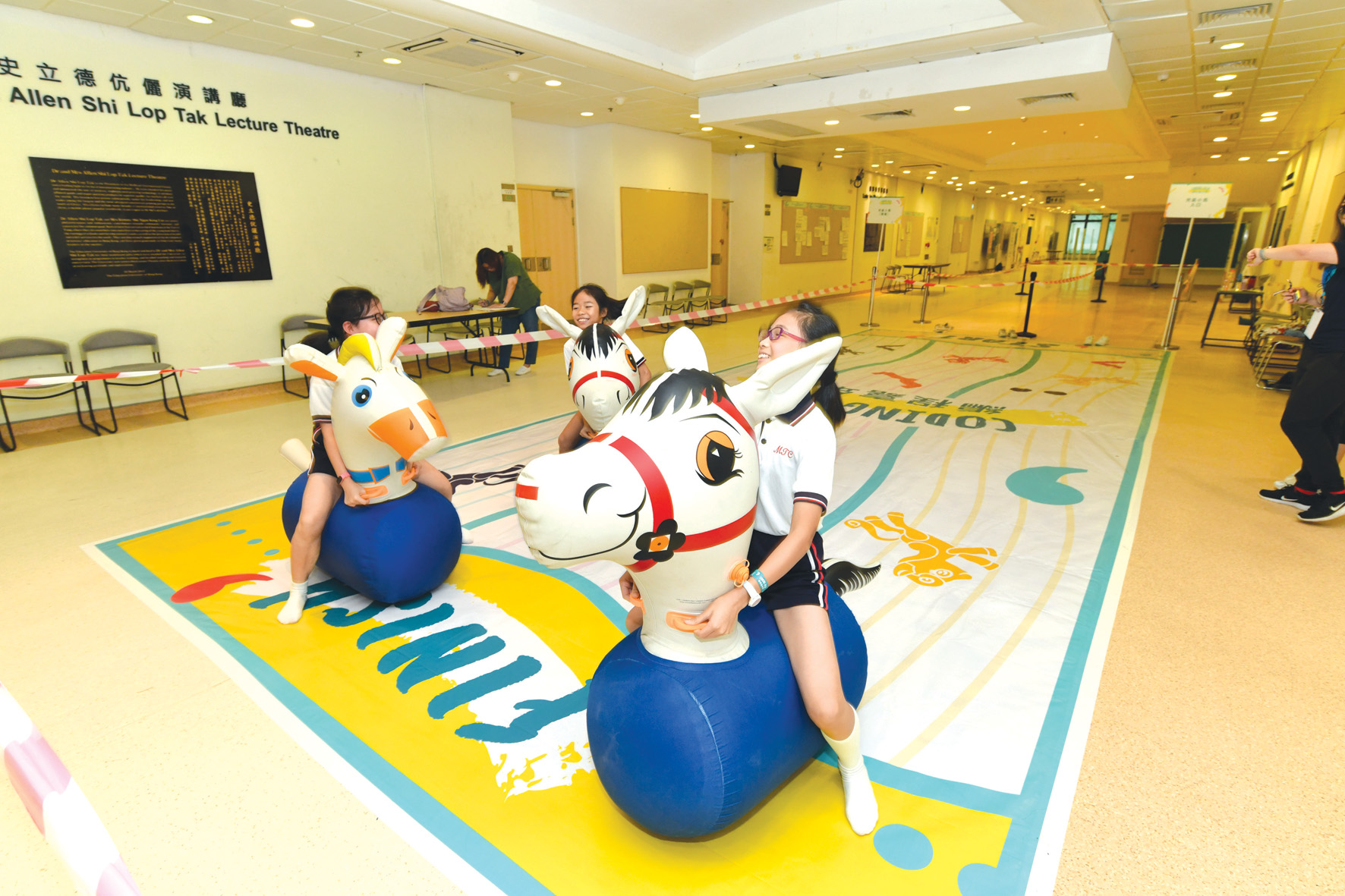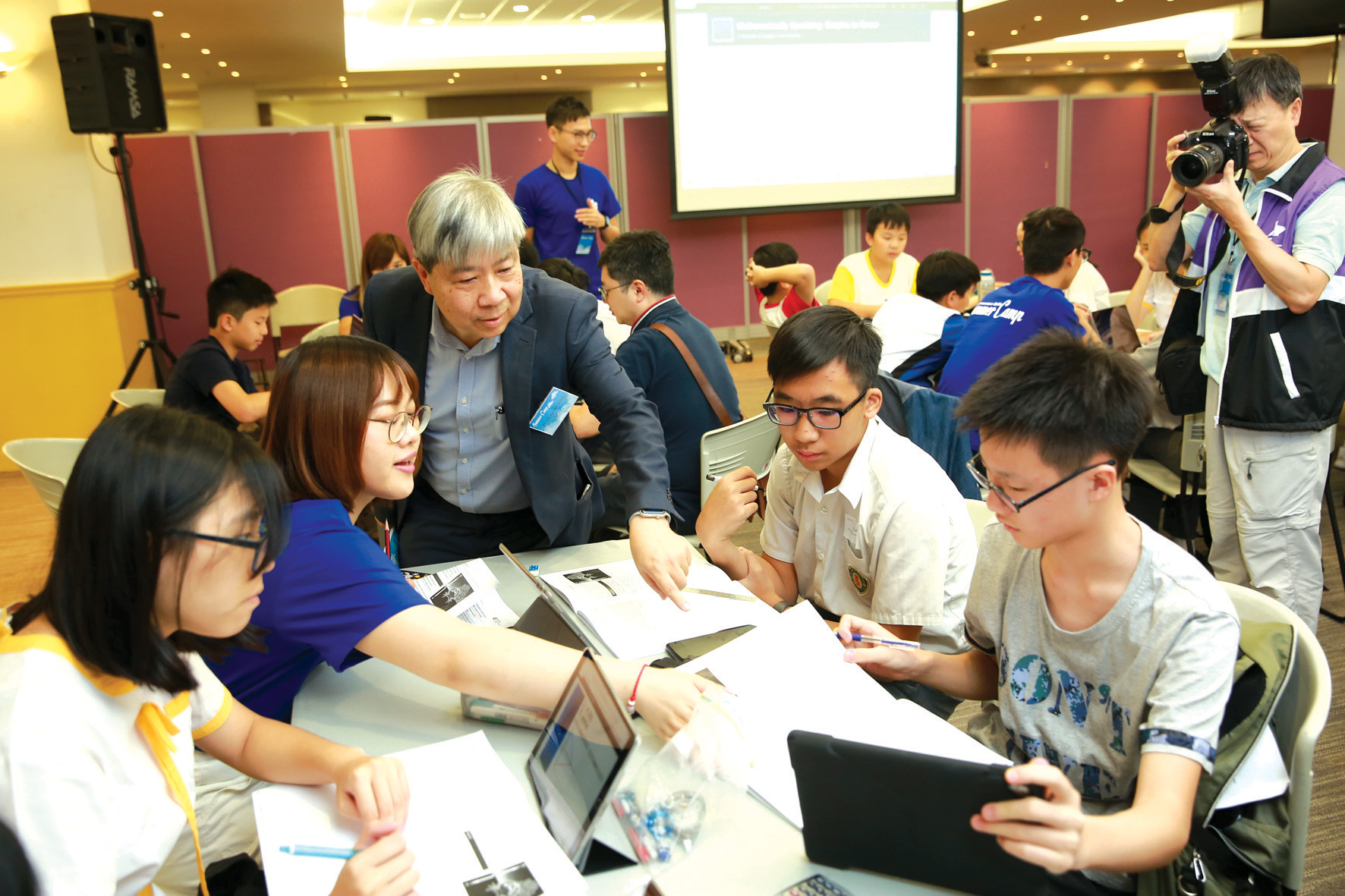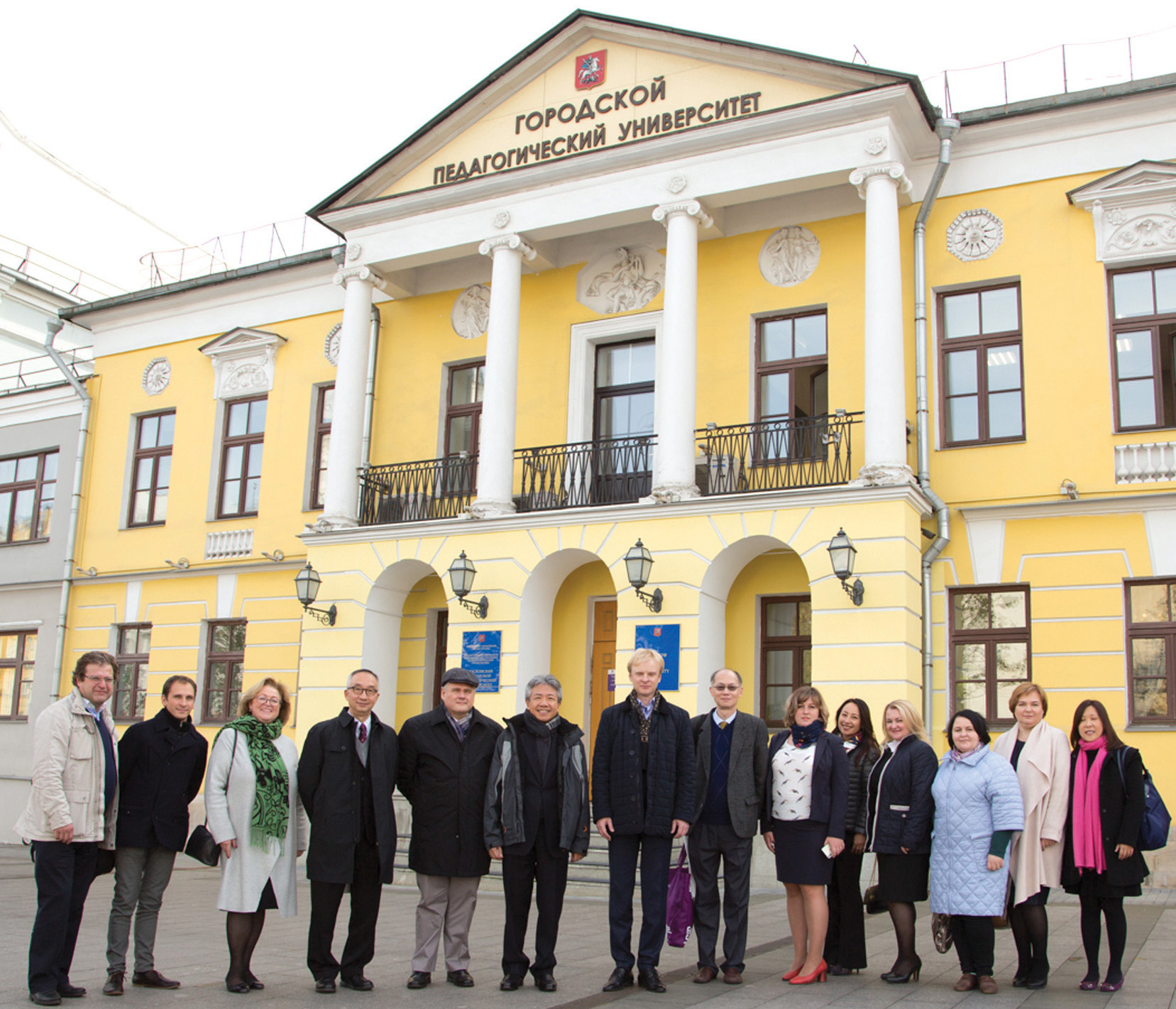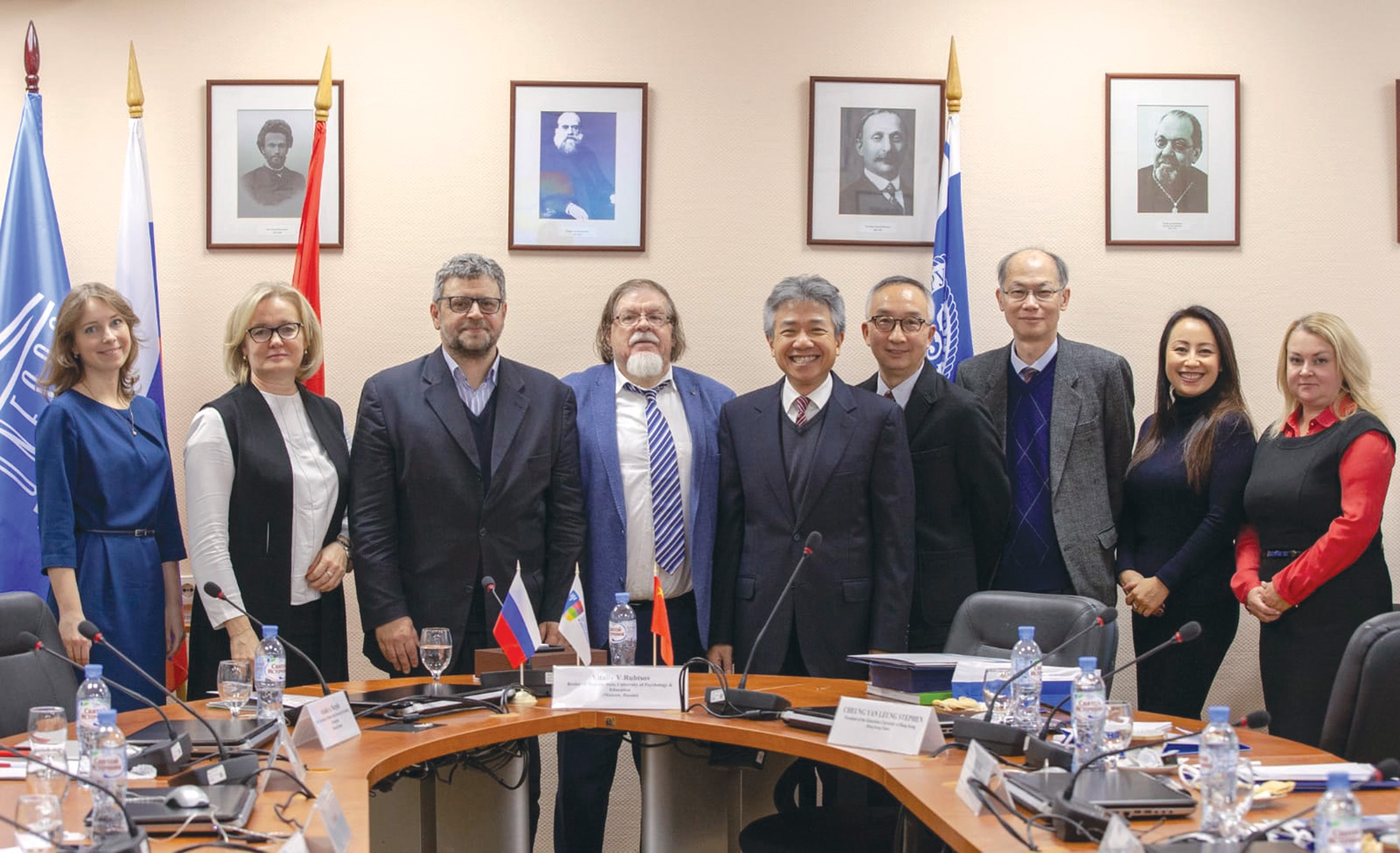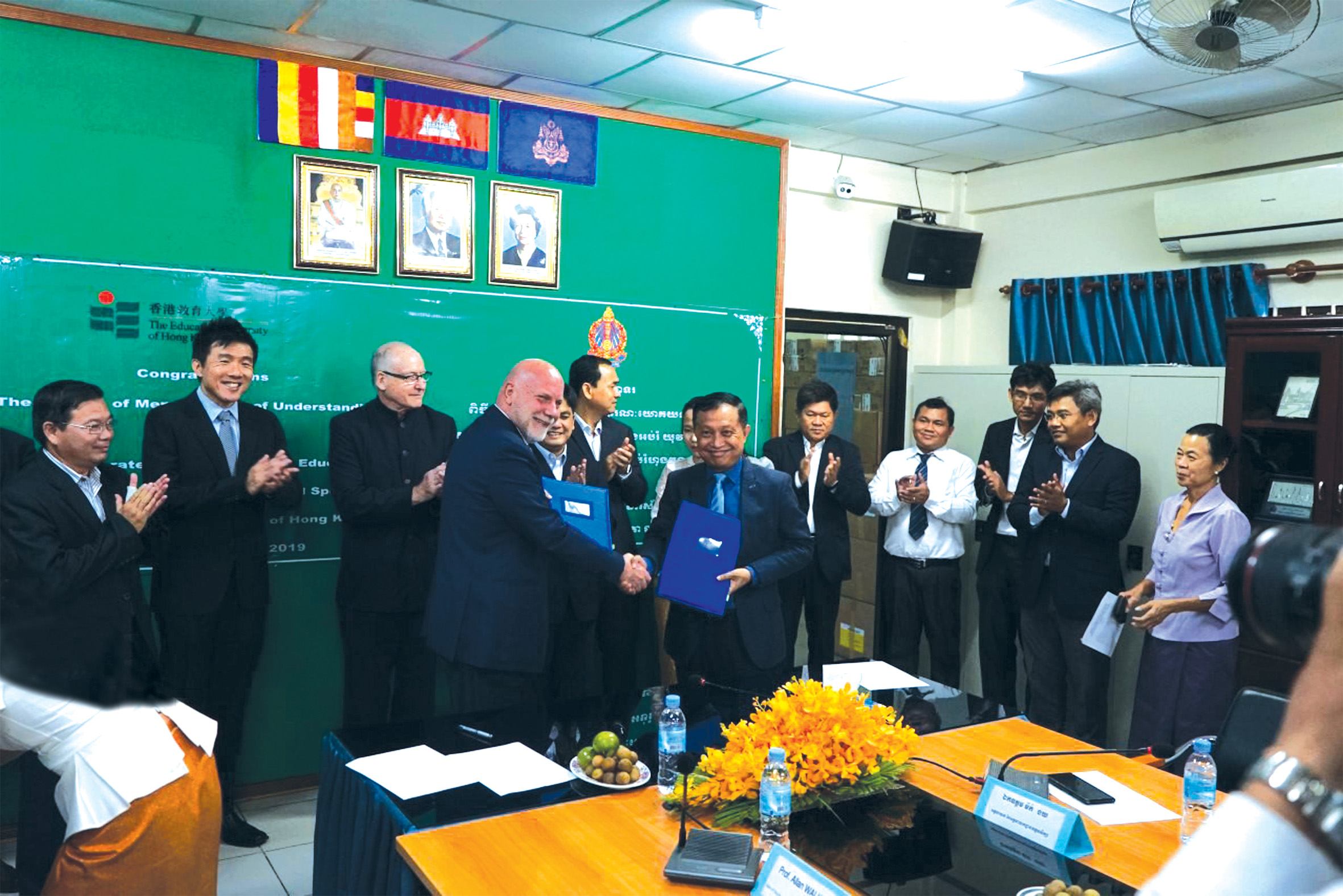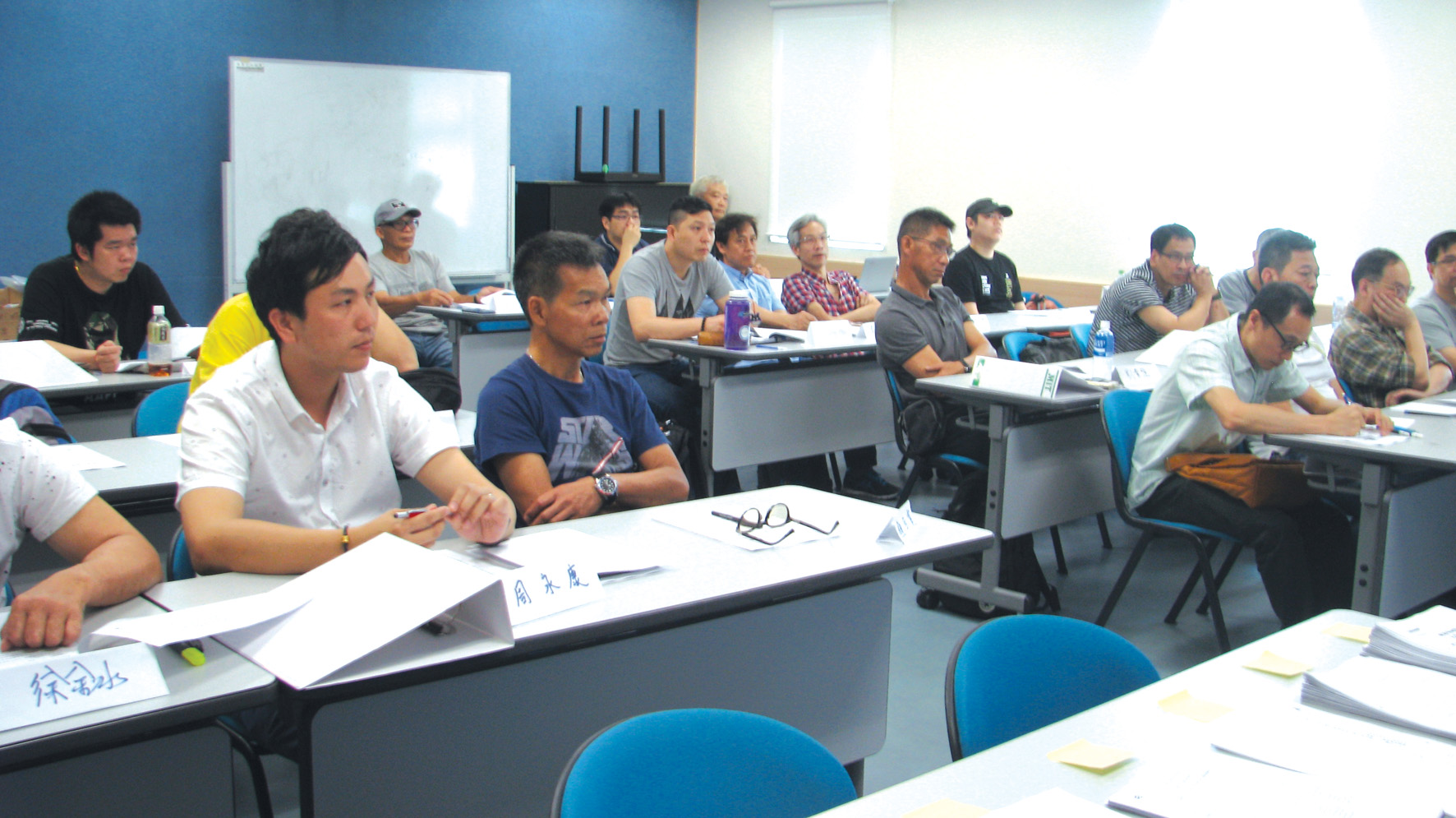A total of HK$26.86 million in research funding was awarded to 41 EdUHK projects in this year’s General Research Fund (GRF), Early Career Scheme (ECS), and Humanities and Social Sciences Prestigious Fellowship Scheme exercises. This was the highest-ever amount received by EdUHK. More than a quarter of the University’s submissions were successful.
In the GRF exercise, the University once again ranked first in the subject discipline of Education, both in terms of the number of awarded projects and the awarded amount. The 13 education projects received total funding of HK$9.13 million, equivalent to 46.15 per cent of the total awarded amount in this discipline. Of the 31 approved GRF projects, 71 per cent scored 4.5 or above on a 5-point scale.
Under the ECS exercise, the University also ranked first in the discipline of Psychology and Linguistics. With four successful projects, representing a success rate of 40 per cent, and total funding of HK$3.92 million, EdUHK secured the most funding, equivalent to 69.91 per cent of the total funding.
Of the seven GRF submissions in Physical Sciences, four were successful, bringing in HK$1.63 million, representing a 57.14 per cent success rate.
Close to half the GRF submissions in Social and Behavioural Sciences were successful. The six projects out of 13 submitted were awarded a total of HK$3.98 million.
EdUHK has been added to the list of designated universities that receive funding under the Innovation and Technology Fund to support technology transfer offices in local universities. The HK$8 million in annual funding from the Innovation and Technology Commission of the HKSAR Government bears testimony to the University’s knowledge transfer efforts and the considerable strides made over the years.
The growing global recognition of EdUHK is the result of our colleagues’ concerted efforts and excellent achievements. In addition to their academic papers being cited by other scholars and their research extending knowledge, they have developed innovations in a range of areas.
In September 2018, EdUHK scholars brought home medals from the International Invention Innovation Competition in Canada (iCAN). Gold medals were awarded to three projects: (1) a low-cost hardware-software system, which enables secondary students to conduct STEM experiments online; (2) a grid notation for an electronic orchestra; and (3) a newly developed graphitic carbon nitride photocatalyst, which unlike traditional photocatalytic environmental purification technology, which uses UV light, can use daylight or indoor light. A silver medal was awarded to EdUHK scholars and research partners for their teaching manual on aerobic game-based exercises, developed for children with Autism Spectrum Disorder.
Across the Atlantic, an interactive Chinese learning method that integrates digital media technology with the meaning and structure of Chinese characters won a silver award at the 70th International Trade Fair “Ideas – Inventions – New Products” (iENA) in Germany in November 2018. Then in April 2019, a delegation from EdUHK won four silver medals and one bronze medal at the 47th International Exhibition of Inventions of Geneva, held in Switzerland. Following the success of education technology (EdTech) projects in 2017/18, which won three silver awards, the 2018/19 submissions demonstrated a wide range of real-world applications of research conducted at EdUHK. The innovations covered pedagogical innovation, AI for education, green aquaculture and healthcare technologies, redrawing the boundaries of education and quality of life.
In June 2019, EdUHK took part for the first time in the Silicon Valley International Invention Festival. The three exhibited educational technologies, which cover Chinese learning and teaching, student revision tracking, and training gamification, won one gold, two silver and one special award.
Of the EdUHK projects which won medals at Geneva, patents have been filed for the fish feed created from food waste project and the Fuzzy Talent Assessment System Based on Educational Big Data. Also, a licensing agreement was concluded with a local social enterprise, enabling it to commercialise the play-based AR Training Kit for ADHD Children. In the reporting year, EdUHK filed patents for the system that creates a grid notation music score, which won a gold medal at iCAN, and a food safety technology invention that uses nano-gold particles.
Over the years, the number of research postgraduates (RPg) has increased steadily. The University now has nearly 300 doctoral students in our RPg and Doctor of Education programmes. Under the Hong Kong PhD Fellowship Scheme, seven EdUHK candidates from Bangladesh, Kazakhstan, Turkey, the United Kingdom and Vietnam were awarded the prestigious PhD Fellowships in 2018/19. In addition, 12 more EdUHK-nominated candidates, from Bangladesh, mainland China, Kazakhstan, South Korea, Nepal, Russia and Vietnam will commence their studies in 2019/20.
To attract more outstanding students from Belt & Road (B&R) regions, the HKSAR Government Scholarship Fund Targeted Scholarship Scheme has been expanded to cover all B&R countries, as well as RPg students, starting from the 2019/20 academic year. Three candidates from Kazakhstan and the Philippines nominated for the B&R Scholarship (RPg) 2019/20 begin their studies at EdUHK this September.
To support the start-up ventures of its students and alumni, the University launched the Education And Social Entrepreneurs Fund (EASE Fund) in 2018, marking a major milestone in cultivating a creative, entrepreneurial and innovative ambiance in the EdUHK community. In 12 workshops organised by The Knowledge Transfer Sub-office, entrepreneurs, investment experts, non-governmental organisations, charity founders, and business consultants shared with participants practical business skills and the latest market information. The three winning teams of the inaugural EASE Fund were each awarded HK$120,000 in seed funding.
With generous funding from the Li Ka Shing Foundation, EdUHK officially launched Cornerstone Maths in November 2018, bringing to Hong Kong for the first time the e-learning platform developed through a transatlantic collaboration between SRI International, a non-profit scientific research institute in the US, and the University College London (UCL) Knowledge Lab. In the 2018/19 academic year, Cornerstone Maths was successfully implemented in 21 secondary schools. The Chinese version, which rolls out in September 2019, will further extend the reach and impact of this innovative platform to benefit more local schools.
The four-year CoolThink@JC Programme, created and funded by The Hong Kong Jockey Club Charities Trust (HKJC) and co-created by EdUHK, the Massachusetts Institute of Technology, and City University of Hong Kong has helped provide 32 local schools with a head start in computational thinking-coding education in computer lessons. Nearly 18,000 students from Primary 4 to 6 have benefited so far and the team aims to further promote problem-solving skills and creativity in order to help more students move beyond being mere consumers of technology to becoming technology innovators in the digital era.
Recognising EdUHK’s leading expertise in the field of education, a growing number of organisations and governments in the region have approached the University to design and put in place strategic plans for education development.
Building on the successful collaboration that began in 2017 with the Russian Academy of Education and Minin University in Russia on teacher professional development, EdUHK President Professor Stephen Cheung Yan-leung, at the invitation of the Department of State Policy in Higher Education (ФУМО ВО) in Russia, led a delegation on a week-long visit in October 2018 to Moscow, Nizhny Novgorod and St Petersburg, where he addressed over 40 pedagogical university heads across the country, explaining the University’s transformation experience.
In the same month, Minsk State Linguistic University (MSLU) in Belarus invited EdUHK scholars to teach nearly 200 local Chinese teachers and students. They shared their experience in training Chinese language professionals and exchanged views on the Chinese curriculum. The visit paved the way for further scholarly exchange, with two MSLU scholars attending The 5th International Chinese Teaching Seminar at EdUHK in July 2019.
In May, the University signed a memorandum of understanding with the Directorate General of Higher Education, the Ministry of Education, Youth and Sport, of the Kingdom of Cambodia to enhance learning and teaching and build the capacity of Cambodian universities. A delegation from EdUHK also met members of the World Health Organization in Cambodia to discuss potential collaborative projects on health education and promotion in the local community. During the trip, the team members provided teacher training at an international school in Phnom Penh and met with the senior academic staff of the state-owned University of Health Sciences.
